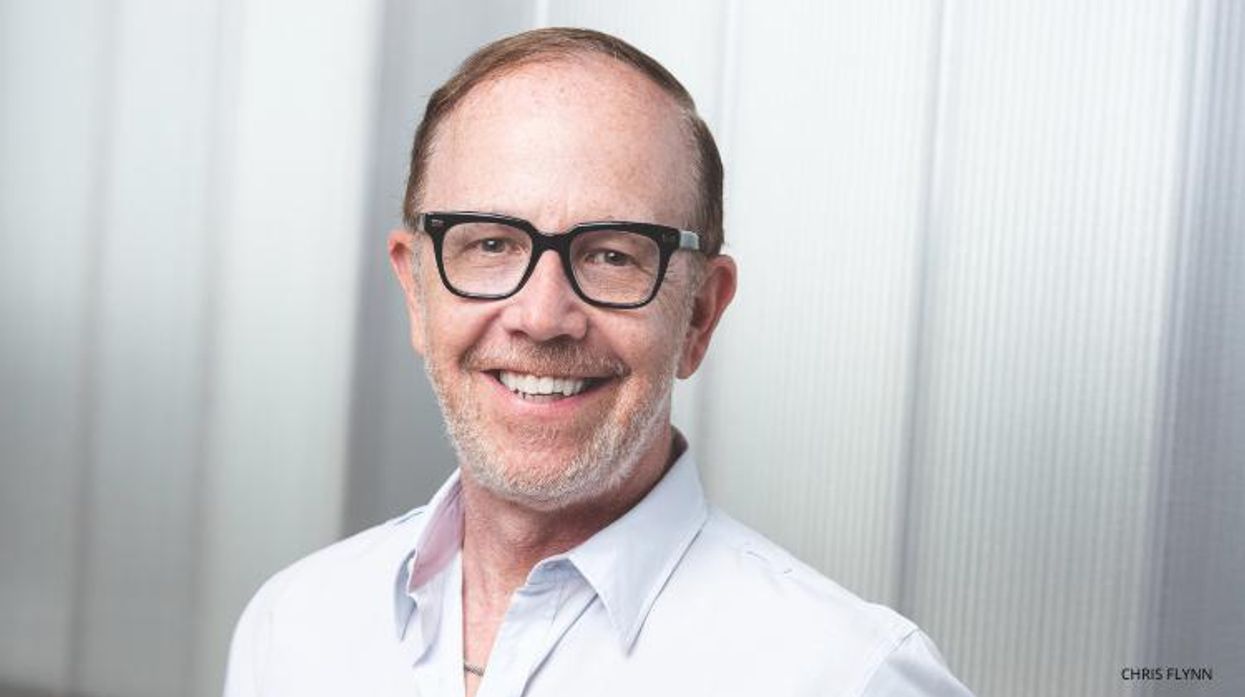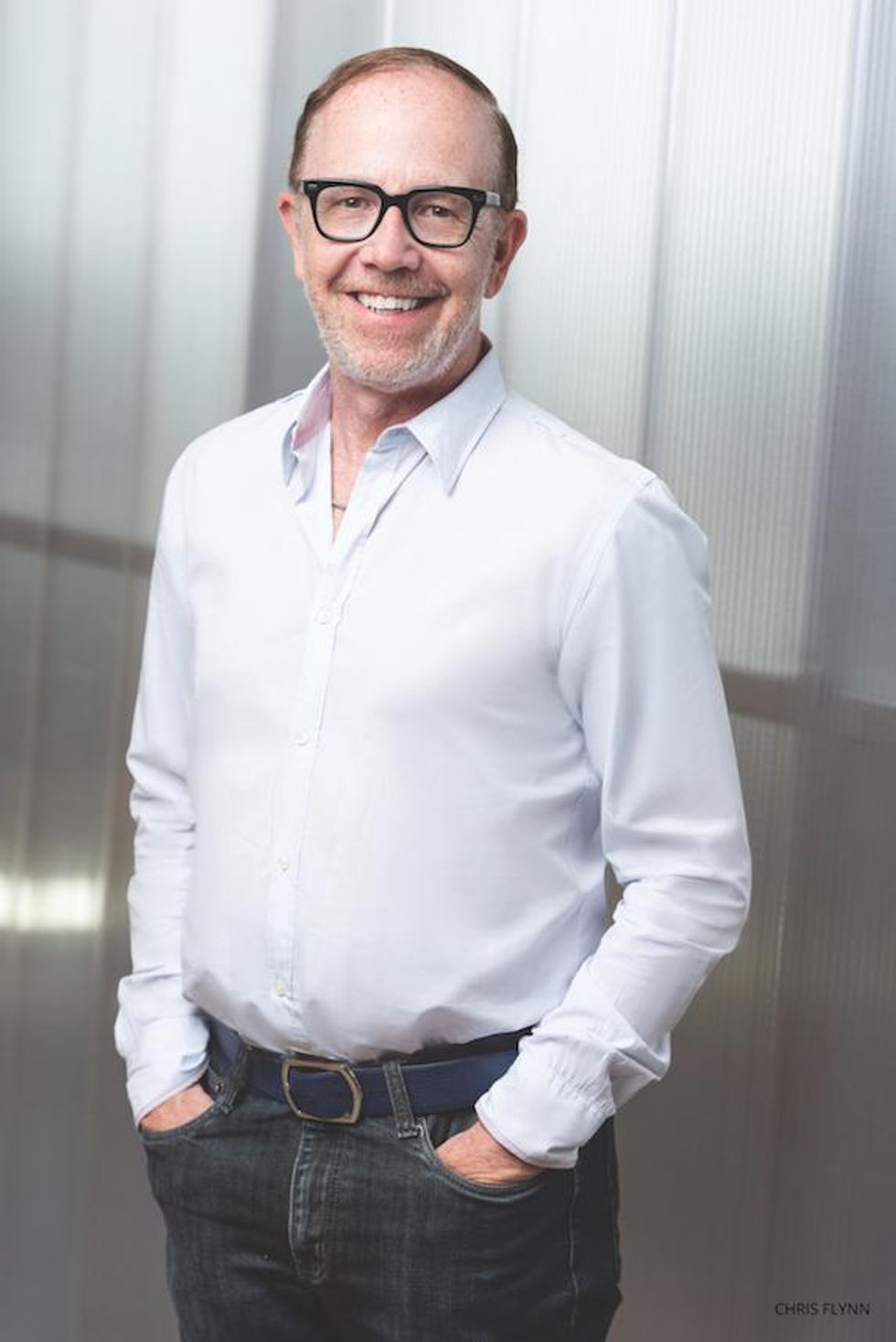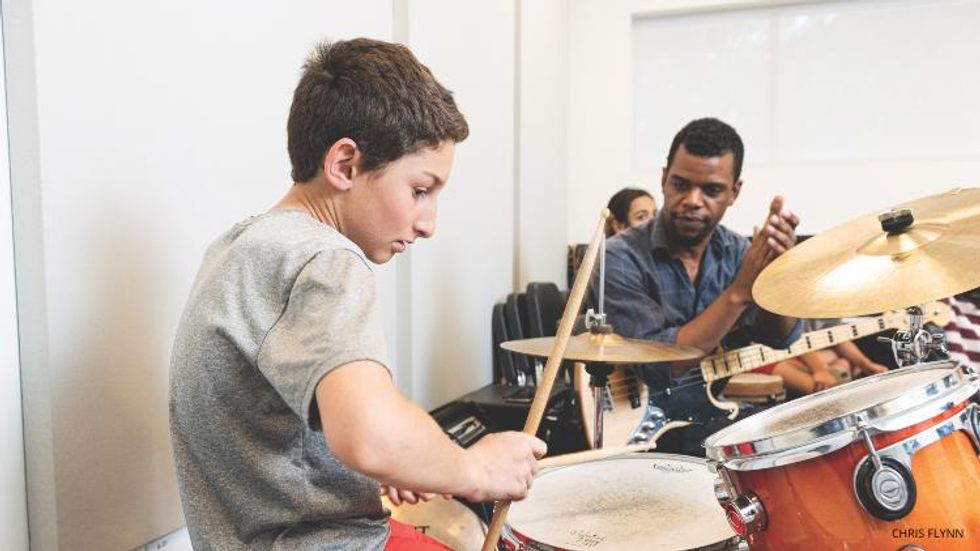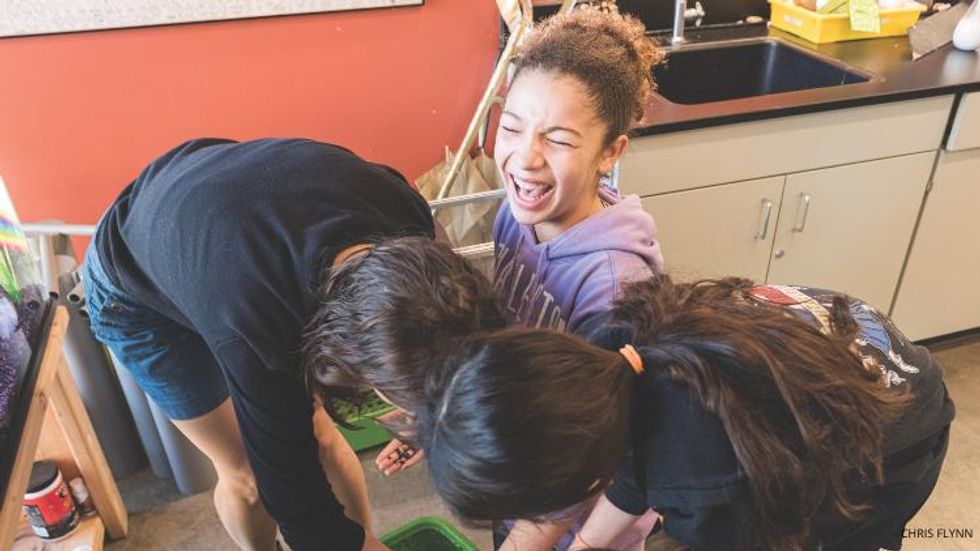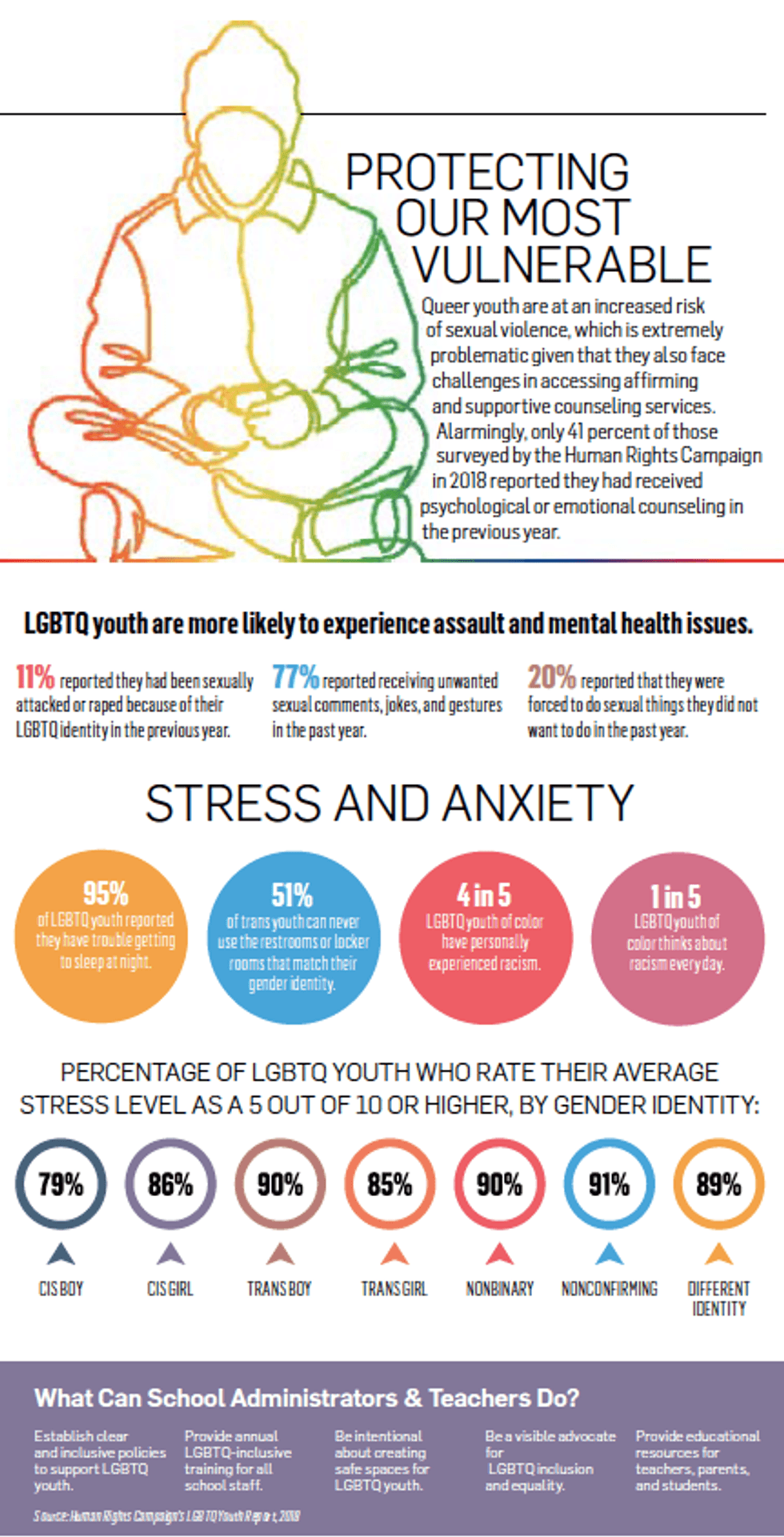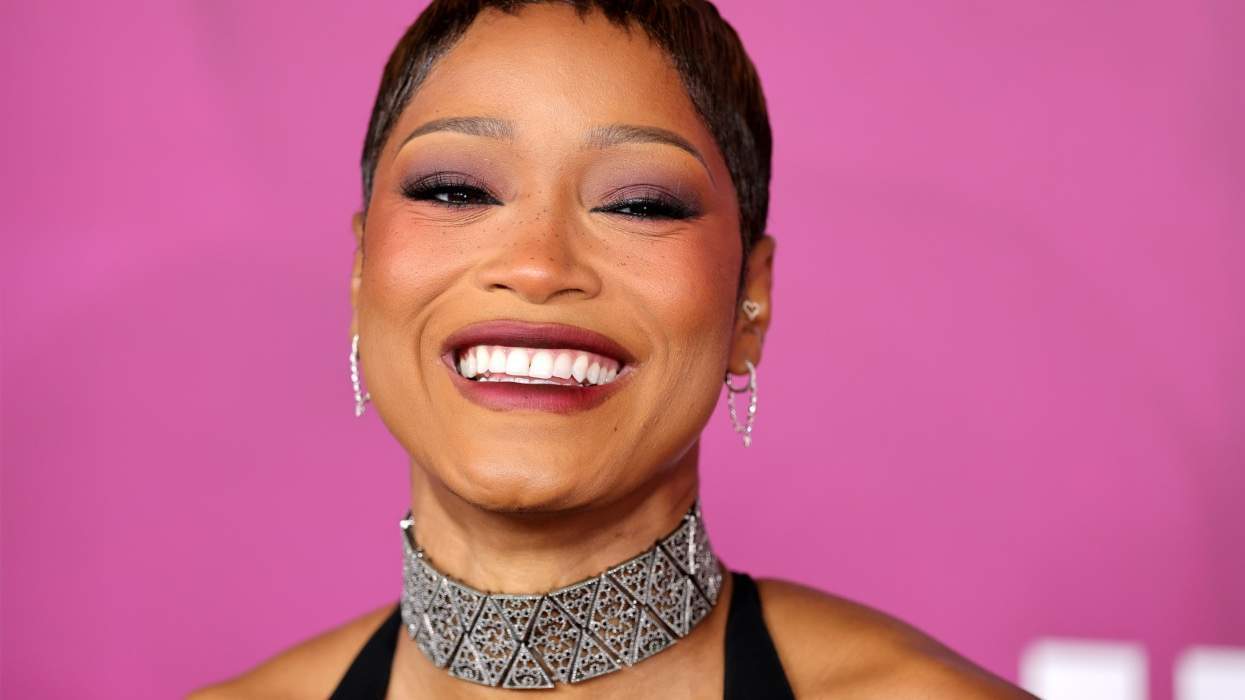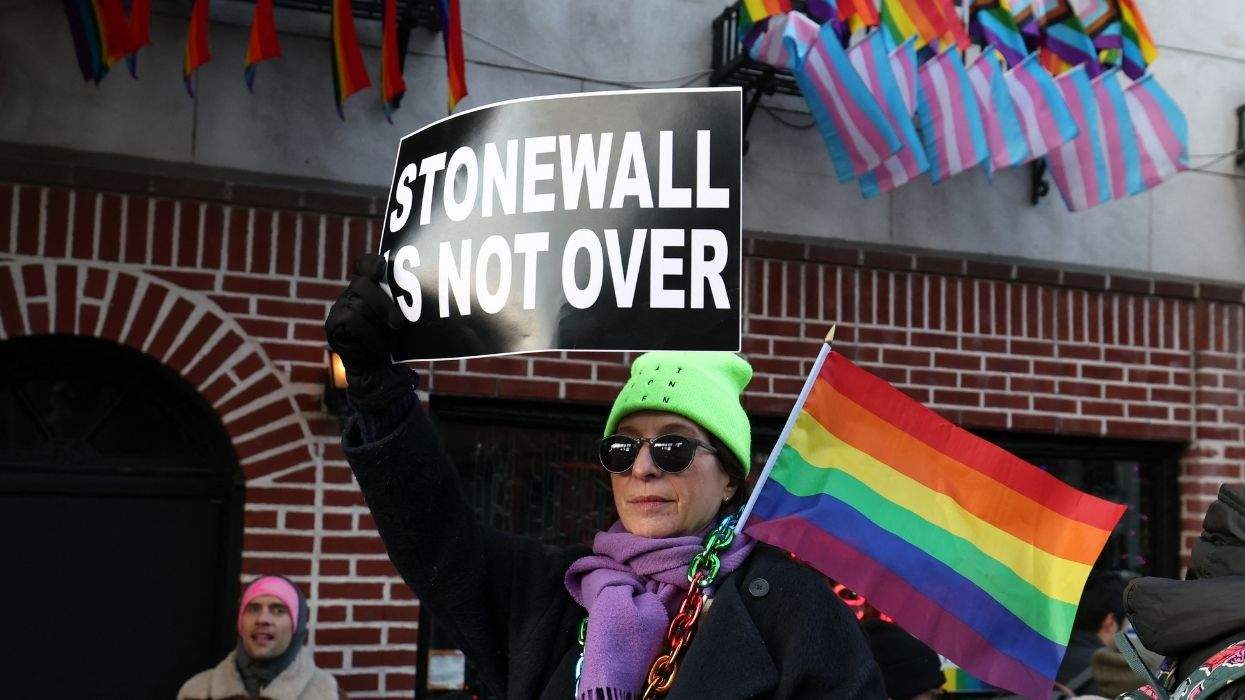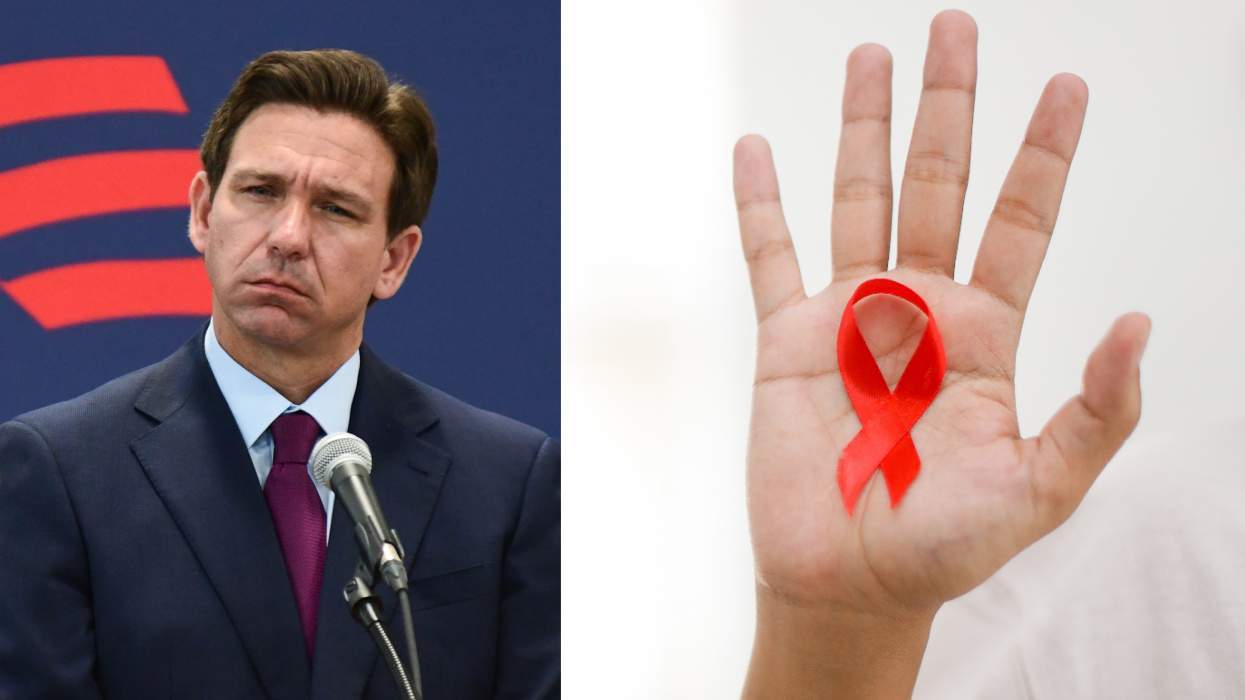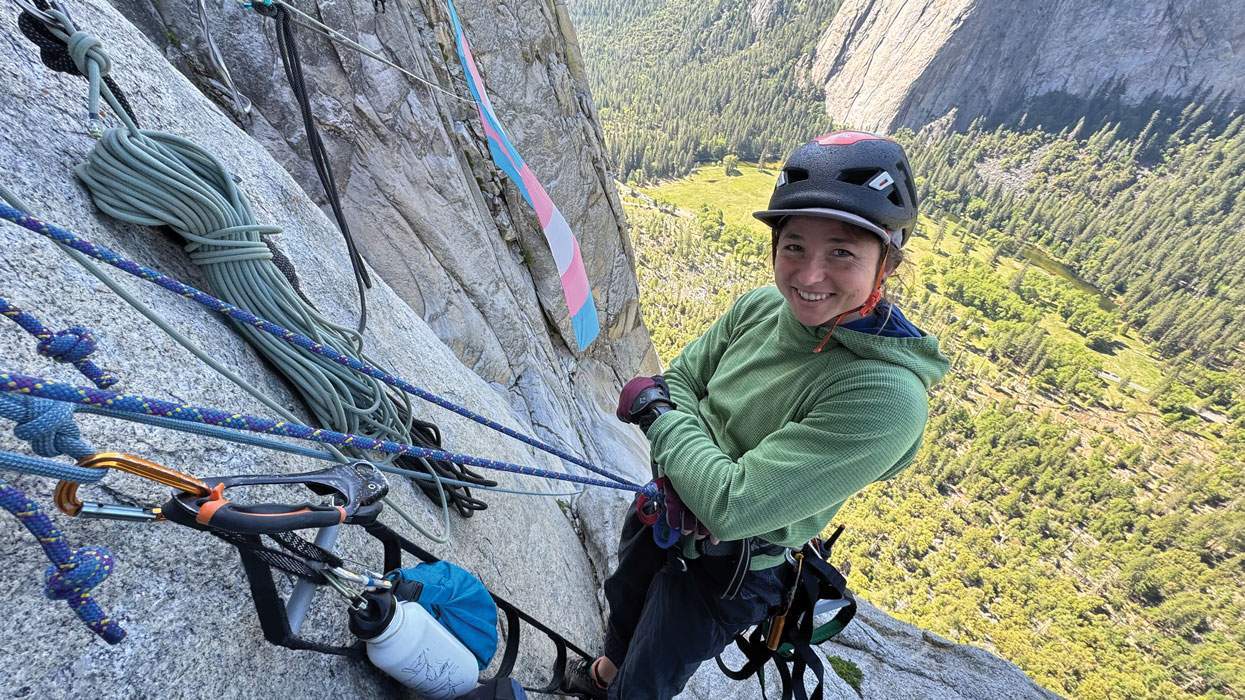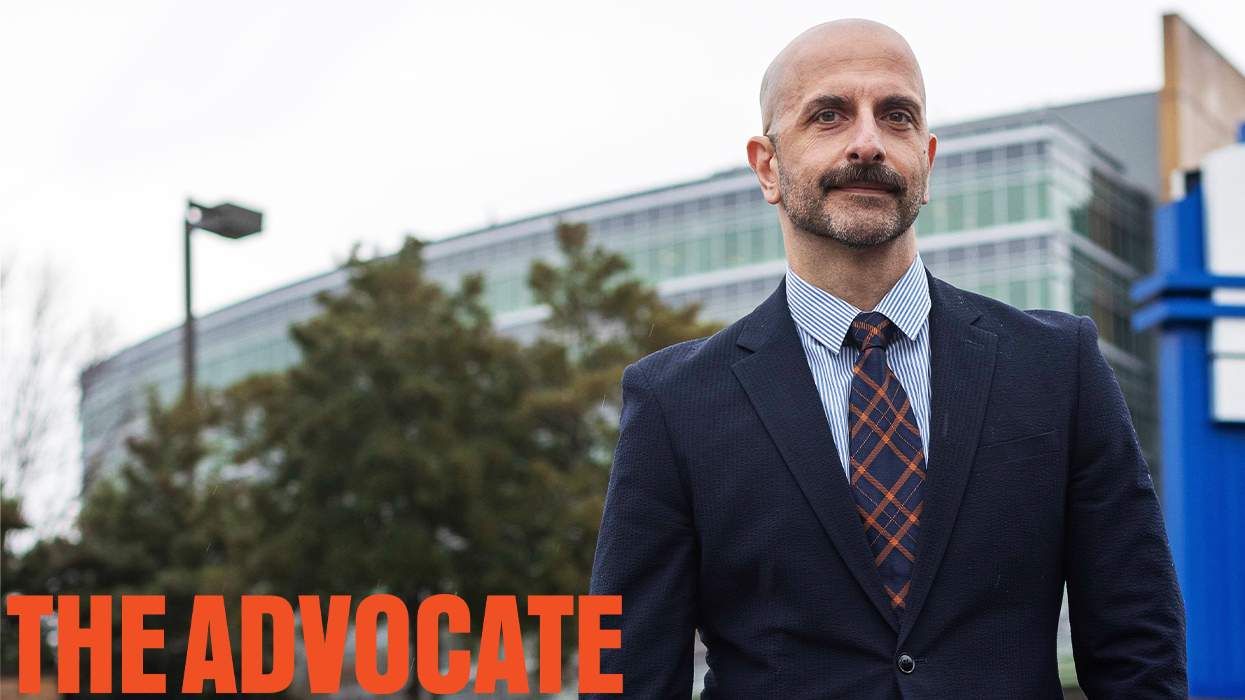Schools aren't always safe spaces for LGBTQ youth. In a 2017 study, GLSEN (formerly the Gay, Lesbian, and Straight Education Network) found that 60 percent of LGBTQ students felt unsafe at school because of their sexual orientation, 45 percent due to their gender expression, and 35 percent because of their gender. During lockdowns, educators may find it difficult to provide the kind of support LGBTQ youth need, especially if they didn't offer it previously.
That's what makes places like Crossroads School for Arts & Sciences in Santa Monica, Calif., even more important now. Under Bob Riddle (right), the school's current headmaster and a proud gay man, Crossroads is equipping students with not only professional skills but a keen awareness about society and culture.
When the school was founded by Paul Cummins in 1971, its mission was to "bring joy back into education," Riddle explains. But then came the inevitable question: How? How do you create a welcoming space where all kids are happy?
"One way you do that is you give them a voice. You listen to them," Riddle elucidates. "I still quote this book our founder used to quote, The Lives of Children by George Dennison. The author argues we need to recognize that schools are not places, but they are at their heart relationships -- relationships between students and students, students and teachers, and teachers and teachers. We need to nurture and cultivate those relationships."
Pictured: Students enjoying middle school music class taught by educator Ian Sloan.
The school's progressive curriculum is itself groundbreaking. In the 1980s, it tackled anti-queer sentiment by creating a seminar focusing on racism, sexism, and homophobia. Crossroads later established a support group for LGBTQ youth and their allies. A few years later, in the early '90s, administrators rolled out a curriculum for grades K-5 that included history lessons about the civil rights movement and the fight for LGBTQ equality -- all with the purpose of giving kids a chance to ask questions.
GLSEN has found that providing students positive lessons about LGBTQ people, history, or events can dramatically reduce the number of queer and gender-nonconforming kids who feel unsafe at school.
That's an important job for Riddle, and one that he doesn't take lightly. He grew up in a housing project in Chester, Pa. His father never finished eighth grade and his mother dropped out of high school. In the 1970s public school system, Riddle remembers all too well being bullied and taunted for being gay. But he also remembers the adults around him who offered refuge and counsel.
"I remember a few teachers who took me under their wing, watched out for me, made sure I was able to go to college, and found scholarship money for me," he recalls. "When I went to college, I made the decision to become an educator because I wanted to make schools better for kids--and not just for kids who identify as LGBT, but all kids."
When a college friend encouraged Riddle to move to Los Angeles because of the welcoming LGBTQ community (he was teaching in Connecticut and was still closeted at work at the time), he decided to take the chance. When he started at Crossroads in 1984 as a math teacher, its middle school principal was an out gay man, something revolutionary given that LGBTQ educators were viciously demonized in those early days of the AIDS crisis.
Pictured: Fifth-graders digging into a worm farm during science class.
A cofounder of the Los Angeles chapter of GLSEN, Riddle these days approaches education with a focus on looking inward as a means to unleash one's potential. Life Skills, one of the school's most popular programs, gives students (every year and in every grade) an opportunity to sit in a circle and talk about what's important to them -- right now.
"It's a way to develop empathy," Riddle explains. "By listening, you realize, Oh, that student sitting across the circle from me who I was always afraid of, I see there's so much more to her than I thought--and we can be friends."
It's not impossible for public schools to implement these kinds of programs, Riddle argues, but there needs to be a bigger fight to bring financial support.
"So much of what's wrong in public education is they're not getting the funding they need to provide the kinds of programs we're lucky enough to provide," he says. "Public schools need more money. It's really that simple. With more money, with smaller class sizes, with better programs, they will have a much easier job of creating these kinds of spaces, these kinds of programs for kids."
"I believe that education is our future," he continues. "We're educating young people who will one day be leading our country and running our companies and raising their own children. We get one chance to get it right."
